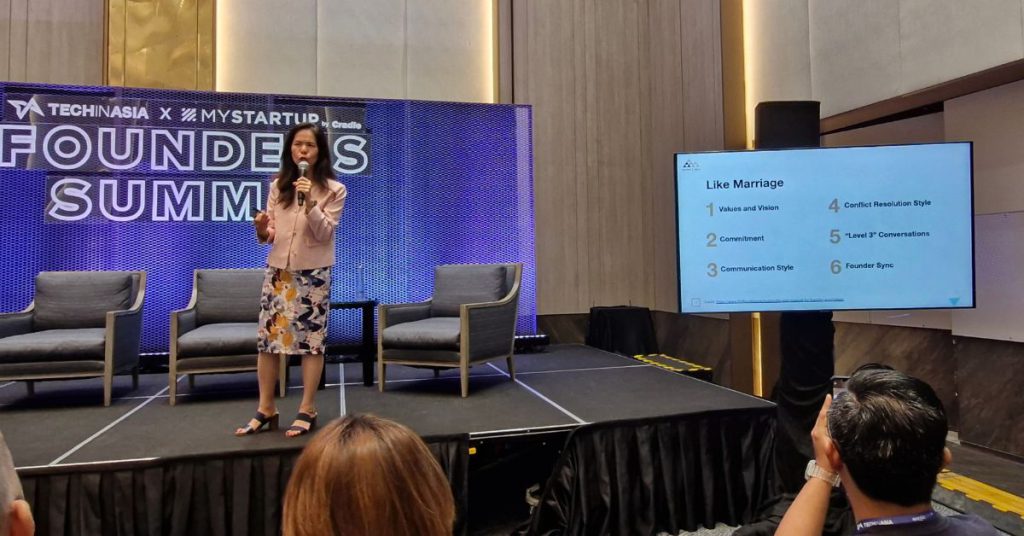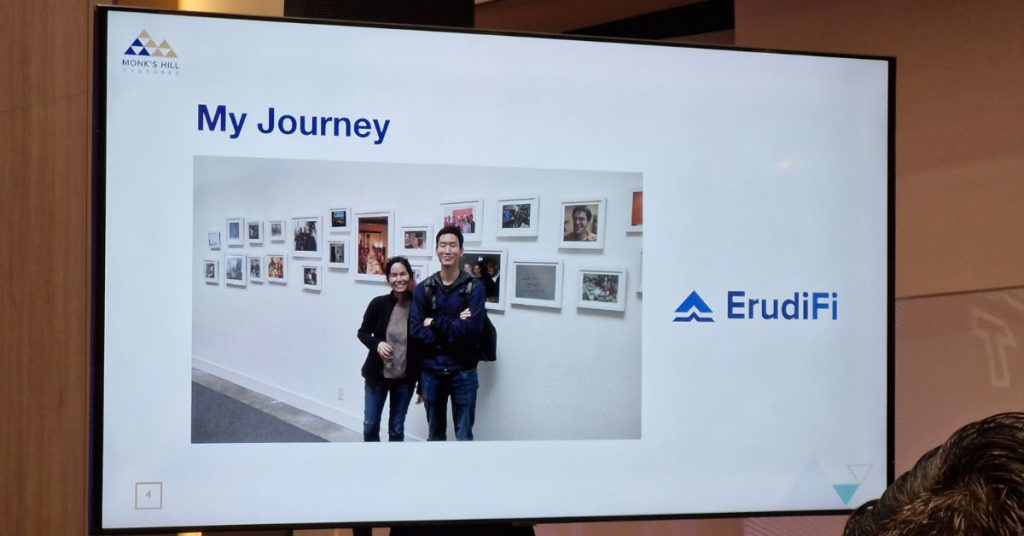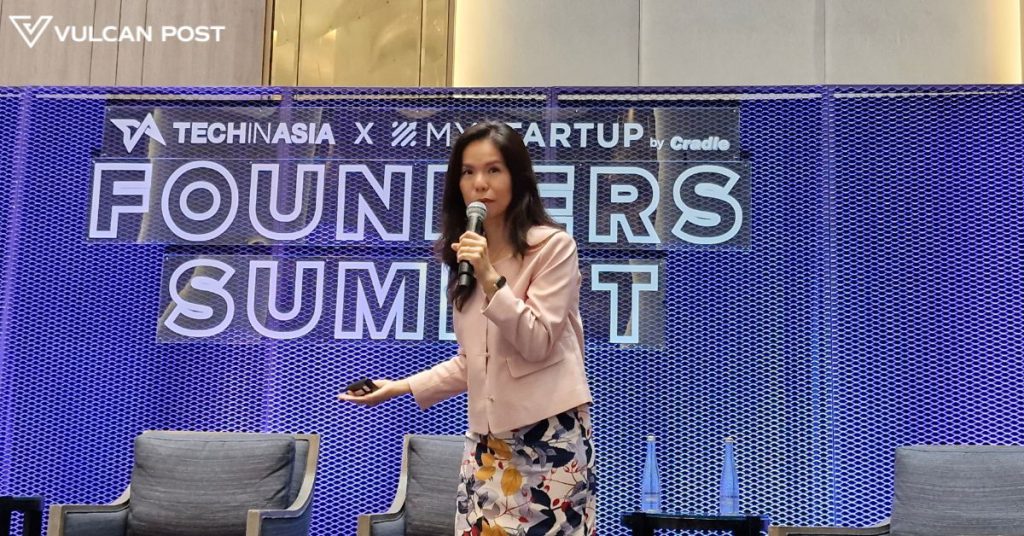In the world of startups, one of the most critical decisions you can make is choosing a co-founder.
Much like the dynamics between a horse and a jockey in a race, the success of a startup often hinges on the synergy between the business idea (the horse) and the individual driving it (the jockey), as Susli Lie, a partner from Monk’s Hill Ventures put it.
Finding a good co-founder is essential to navigating the myriad challenges startups face, from initial setup to scaling and beyond.
Here are eight key questions shared by Susli at the Tech in Asia Conference 2024 to consider when searching for your ideal co-founder.
1. What are their values and vision?
Before anything else, align on values and vision. It’s vital to ensure that both the founders and co-founders share a common purpose and long-term goals. If not, it can lead to fundamental conflicts down the road.
“If you’ve had someone come in to sit across the table from someone who is objectively different to you, like, not birds of a feather, but you find deep alignment in your values, your vision, and your commitment towards what you’re trying to do, I think that there’s an opportunity to create a fantastic team that is complementary in ways that are stronger for what you’re trying to do.”
“Discuss what motivates you, your views on work-life balance, and your aspirations for the company to them,” she added.
2. What is their commitment level?
Understanding the level of commitment your potential co-founder can offer is crucial.
“Are they willing to work full-time on the startup, or will they be splitting their time with other commitments?”
“You know, do you think this is a two-year endeavour, or a three-year endeavour, five-year endeavour, 10-year endeavour?” she asked.
She also asked to discuss financial expectations, the willingness to forego salary, and the time they can dedicate to the venture.

3. How do they communicate?
Communication styles vary widely. Some people prefer direct and transparent communication, while others might be more reserved or indirect.
“I think it’s super important when you have a co-founder who also spends time to understand how they communicate and how you communicate because that establishes trust and it also helps you understand intent.”
“Because sometimes, people might say something, or not say anything at all, but that’s not really what they mean,” said Susli.
4. How do they handle conflict?
Conflict resolution is a significant aspect of any partnership. Find out how potential co-founders deal with disagreements. For example, are they confrontational or avoidant?
“If you’re on two ends of the spectrum, and this is in any relationship, really, how do you find a way to meet in the middle? Because, for instance, if I have a problem, I’m willing to deal with it now. And if I don’t, the negativity builds up, and I become less likely to engage as I wait.”
“There are other people who, if they meet a problem, they just want to go away, calm down, and then when they come back in a few days, they’re at a better place to engage. So if you force that person to engage at the moment of conflict, things are gonna [blow] up,” she shared.
She also noted that investing time in getting to know an individual’s support network is essential. When challenges arise, this knowledge provides additional insights into how the person might cope with the situation.
5. What are their strengths and weaknesses?
A good co-founder complements your skills and compensates for your weaknesses. Assess their expertise and experience to see how it aligns with yours.
“Especially since you’re going to be working side by side a lot. And you feel like you’re spending a lot of time with each other. But the quality of the conversation and the time you’re spending actually matters.”
“So, whether it’s weekly or every other week, I would highly [recommend] just kind of sit down and check in on each other and figure out what’s going on and tell each other if something is going on. Ultimately, I think it’s really an exercise in self-awareness,” she added.
6. Are they resilient?
Startups are fraught with challenges, and resilience is a crucial trait for anyone on this journey.
“Gauge their ability to cope with setbacks, stress, and the inevitable highs and lows of startup life.”
“Making sure that people are being honest about their stress factors, their personal map, or maybe other life circumstances that you are not aware of that is creating a lot of tension,” Susli said.

Resilience will keep the team motivated during tough times.
7. How do they make decisions?
Decision-making styles can significantly impact the startup’s trajectory. Determine whether they prefer data-driven decisions or rely more on intuition.
“Is there enough structure in the decision-making process to understand how decisions are going to be made and who’s going to be accountable?” she asked.
Understanding this will help you collaborate more effectively and avoid potential gridlocks in critical situations.
8. Are they willing to be accountable?
Accountability is essential for the success of any business. Ensure your potential co-founder is ready to take responsibility for their actions and decisions.
This willingness to be accountable fosters a culture of trust and reliability.
“When there is a decision, when people are disclaimed, who’s going to bring the tide and lead the company forward? And be accountable.”
“So I think this can be dicey, especially when it’s not clear between the co-founders who’s maybe bringing more to the table, or who’s the better person in the company,” she noted.
Susli advised business owners to have an active conversation about this as soon as possible. Just like in any relationship, the quicker issues are addressed, the less they cost in the long run.
Additionally, delaying such discussions allows the investor to accumulate more influence or control, potentially complicating matters further.
Where to find your ideal co-founder
Finding the right co-founder might seem daunting because it requires a combination of effort and luck.
Networking events, industry conferences, and online communities can be valuable resources. Accelerators and incubators also provide opportunities to meet like-minded individuals.
Remember, building a successful startup is a marathon, not a sprint. Choosing the right co-founder is a critical step.
By asking these questions and seeking potential co-founders in the right places, you can increase your chances of finding a partner who will help turn your startup vision into a thriving reality.
- Learn more about Tech in Asia Conference 2024 here.
Featured Image Credit: Vulcan Post










